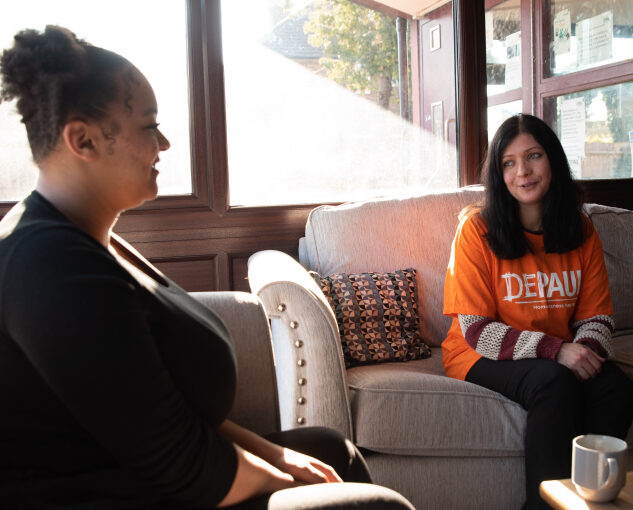
For children who grow up in care, turning 18 years old can be daunting. A celebratory birthday that for most would be an exciting and significant turning point is often a time of fear and dread. Suddenly they are expected to navigate life all alone.
National Care Leavers Week (28 October to 3 November) aims to raise awareness of the challenges faced when young people leave the care system, as well as celebrate their resilience and achievements, and champion the support available for them across our communities.
Most young people on their 18th birthday still benefit from the support of a family environment, whether that be guidance from a loved one, emotional support, or simply having a roof over their head and food to eat. But for many young care leavers this can all but disappear overnight.
Victoria Mulhern, Service Manager at Depaul UK in Salford, works with young care leavers. She said: “We’ve seen many young care leavers struggle when support is abruptly cut off. They are still very vulnerable and need ongoing guidance. The emotional toll can be immense, and many will experience mental health issues such as anxiety, depression, and even suicidal ideation.”
In 2022 a government report showed:
Shocking new figures released by the charity Become this week also show that more than 4,300 young care leavers are currently facing homelessness in the UK, an increase of 54% in the last five years.
At Depaul UK our vision is for a society in which everyone has a place to call home and a stake in their community. Our mission is to end homelessness and change the lives of those affected by it.
That’s why some of our services are specifically aimed at care leavers – helping them to bridge the gap between life in and after care.
We help by providing supported accommodation to equip them with the skills to manage their own home and finances. They learn basic skills like budgeting and cooking. They also have access to around-the-clock mental health support, focused on trauma-informed practices. Our aim is to provide the practical and emotional skills they need to avoid homelessness and build a bright and fulfilling future.
Victoria continued: “It’s not just about the practical skills. It’s about people finding their way in the world. Our programme’s holistic approach helps care leavers build resilience, manage their mental health, and develop healthy relationships in the future. This is an age where we can make a real impact for these young people, ensuring they have a successful adulthood.”
In the Salford service where Victoria works, there are numerous success stories. By the end of his placement, one young man, who had spent most of his teenage years in youth offending institutions, had managed to avoid criminality for the longest period in his life. Another young woman went on to complete a university degree and contributed to a published book about her experience in the care system.
There are approximately 80,000 children in care in England right now. All of whom deserve a safe place to live and the chance of a better future. By marking National Care Leavers Week, we recognise the rights of each care-experienced child, and we advocate for the continued support they need to thrive at home and in their community.